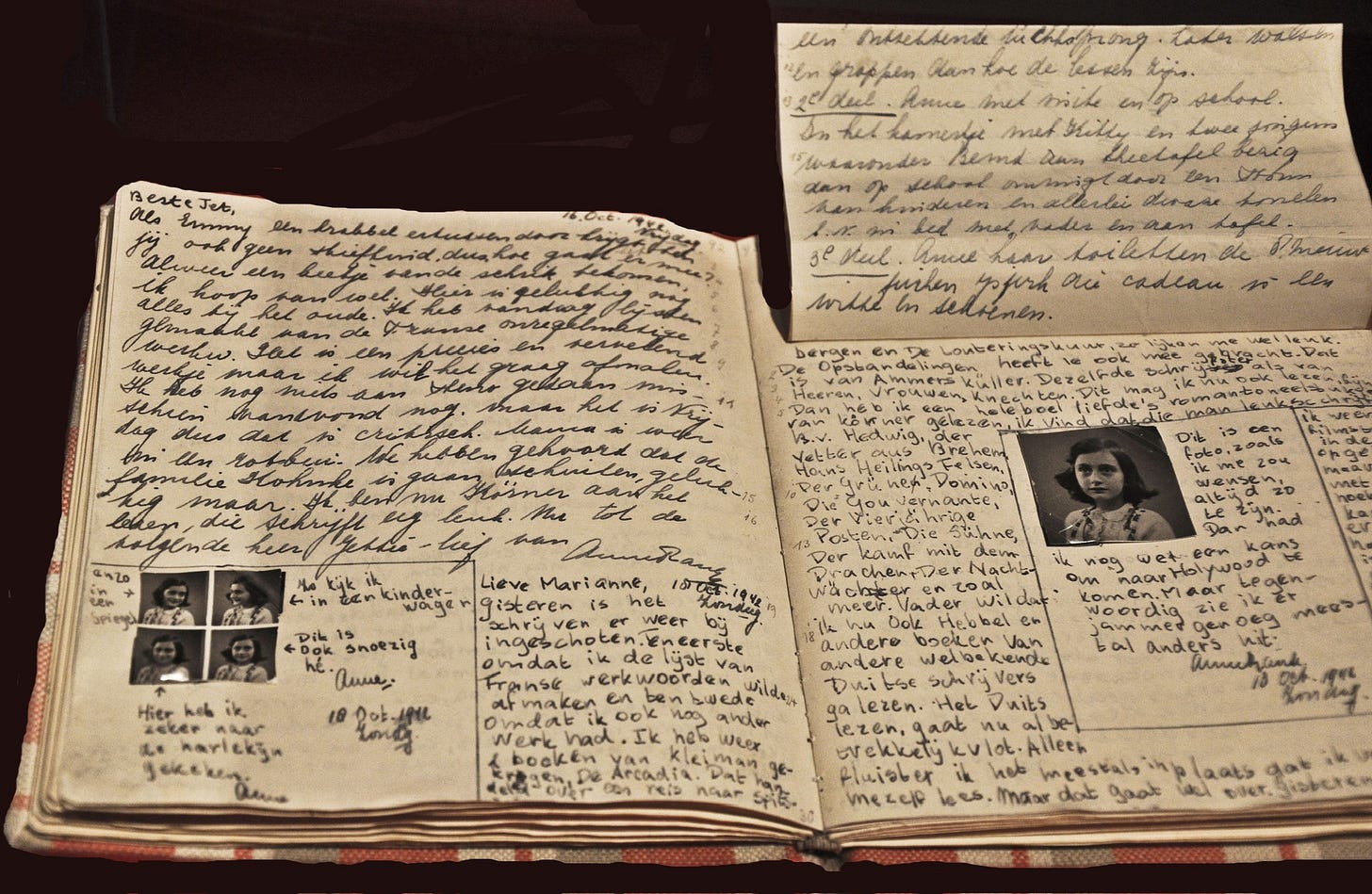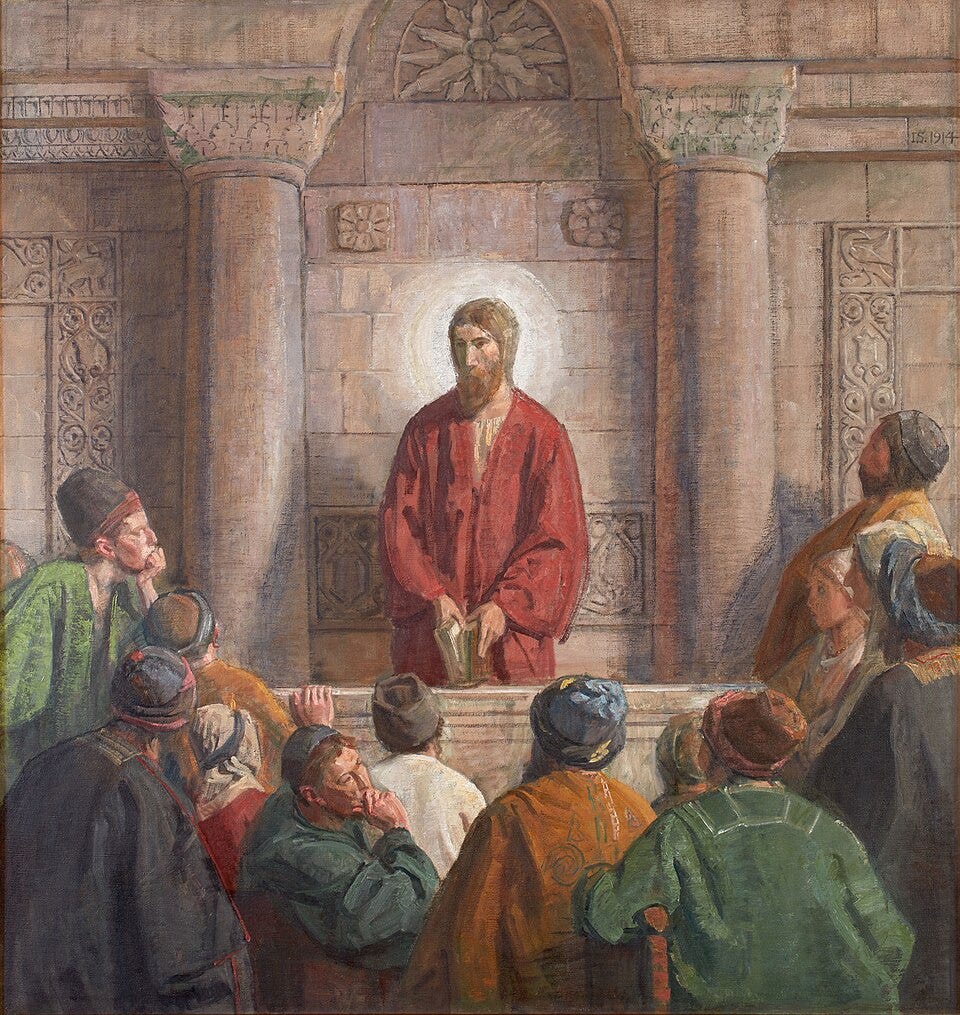Photo compliments of Tobias Rademacher.
You can get lost in a hospital. You take a broad corridor that leads not to an exit but to the double doors of an operating room posted Do Not Enter in bright red letters. Impatient with the interminable wait for the elevators, you opt for the stairwell that seesaws down three flights only to cast you outdoors on a dark side of the mammoth building. When you turn back to retrace your steps, you discover a locked door and another bright red sign reading, No Reentry. Starving after sitting with your loved one for hours, you venture to the cafeteria and end up in the industrial laundry.
While these misadventures are comical, another kind of lost-ness or bewilderment takes hold of us in a hospital that is far worse. If you stay within its confines long enough, you lose track of whether it’s night or day, summer or winter, Monday or Thursday. Once you no longer hear the persistent aggravating beep of the malfunctioning IV mechanism, you are adrift in that labyrinthine place of manufactured air, constant bleeps, bings, and beeps, and exhausted, expressionless people.
Thirty-four summers ago, as part of my seminary training, I served as a chaplain in a major urban hospital in Austin, TX. My work was primarily in the cancer, AIDS, and eating disorders units. During those months I served in the hospital, I routinely escaped outside and circled the block between bedside calls and emergency room interventions. Taking a lap in that 100° heat allowed me to stave off the fog that could befall me in that disorienting interior world.
I’m a “light weight” compared to my wife, who served twenty-five of her many years as a registered nurse in critical care units across five different states. Until now, I have cannily avoided extended hospital stays. All that changed six weeks ago ago when our forty-three year-old daughter slipped in her apartment and crushed a vertebra in her back. Due to chronic illnesses that have necessitated large doses of steroids over the past twenty years, the surgeon observed her back looked as if she had fallen from a second story window. Three surgeries later, we are back in the orthopedic ward with no exit in sight. When I left the hospital last night, I felt like dancing all the way to my car.
The confession does not say good things about my stamina, especially in the face of our daughter’s excruciating fight to get back on her feet, nor in the face of my wife’s sacrificial attentiveness. Kay, for her part, has always been one who sets her sights on what must be done and just as quickly adjusts her outlook and expectations to the new reality. That may be a universal quality of mothers. The birth of a child changes and keeps changing a mother’s reality forever.
The girl who kept hope alive
Pondering Kay’s ability to alter her expectations, I recall a person, who, more than any other, was able to create a new reality within a truly suffocating environment — Anne Frank. On July 6, 1942, Anne moved with her parents Otto and Edith and her sister Margot into a 800 square foot “Secret Annex” that was covertly constructed behind Otto’s Amsterdam business offices. Joining the Franks were the van Pels, Herman, Augusta, and son Peter and Fritz Pfeffer, an unmarried dentist. The eight were Dutch Jews hiding from the Nazis who captured the city two years earlier on May 15, 1940. Anne’s room in the annex was 13’ x 8’, the size of a modest throw rug in modern American homes.
The clandestine octet lived in that confined space until August 4, 1944, the day they were betrayed by one of Otto’s employees and discovered by the German Gestapo. They hid there for 761 days — never venturing outside. The isolation, close quarters, and ever-present fear of discovery, seems wholly unbearable. For teenage Anne, the long days and nights were surely torturous. And yet on July 15, 1944, she wrote these lines in her third to last entry in what would become the most famous diary in history:
This is the difficulty in these times: ideals, dreams, and cherished hopes rise within us, only to meet the horrible truth and be shattered. It’s really a wonder that I haven’t dropped my ideals, because they are so absurd and impossible to carry out. Yet I must uphold my ideals, for perhaps the time will come when I will be able to carry them out.
After the eight were captured, they were initially held at Westerbork Concentration Camp in the Netherlands. Later, they were sent to the notorious prison camp Auschwitz in Poland. In November, Anne and Margot were chosen to assist in German war production and were transferred to Bergen-Belsen near Hanover, Germany. Six months later, the two succumbed to typhus and starvation. Margot died in Anne’s arms. Anne perished shortly after. The Red Cross was unable to determine the exact date of their deaths.
Otto, their father, was the only one of the Secret Annex eight to survive the camps. He returned to Amsterdam, and, with help from two of his former secretaries, he published Anne’s diary as a simple, one-time tribute to her. Otto never imagined that Diary of a Young Girl would be translated into seventy languages and sell more than 70 million copies, making it second only to the Holy Bible in sales. The horrible truth could not shatter her ideals, nor could it erase the message she composed in that 13 x 8 foot room.
I have written about Anne Frank before and will likely do so again. Her heroism belies imagination, especially when considering she was in most every way a typical teenager. For instance, in her March 24, 1944 entry when she was fourteen, Anne meticulously describes her vagina, a fact that has scandalized more than one school board in America’s most recent relapse of prudish moralism. However, because her humanity is unguardedly revealed in her diary, her voice rises above the blighted battlefields, shattered cities, and desolated families of WWII. Her words ring prophetically, as they offer hope in the face of overwhelming odds. Anne began writing her diary on June 12, 1942, her thirteenth birthday. Her last entry was made on August 1, 1944, having just turned fifteen a month and a half before. Stripped of most of her possessions, her freedom, her innate dignity as a human being, and her privacy as a young adolescent girl, she filled 215 sheets of paper with 50,000 words. Winston Churchill wrote over 1 million words about his experiences during the war, but he has enjoyed far fewer readers than that brave, approachable, thoroughly human Dutch teenaged girl hiding in the annex.
Jesus and the hope of the kingdom
A picture of Jesus’ own humanity coalescing with his divinity rises to the fore in the inaugural speech he gives in Nazareth, his hometown. The episode begins with, ‘Jesus returned in the power of the Spirit to Galilee’ (4:14). After three confrontations with the devil in the Judean wilderness, Jesus, under the Spirit’s guidance, determines what the substance and thrust of his ministry will be. Only days before, Jesus drew from the Scripture’s wisdom to repel the devil’s temptations. Now to disclose the content of his ministry, Jesus, again, mines the Scripture. He will model his work on the words of Isaiah, issued 700 years before. For good reason Isaiah is called the “Fifth Gospel.” Furthermore, Jesus is like every other human being, naked in the face of life’s behemoth challenges without a word from God. And yet, Jesus does not read the Scripture like an automaton. No, he, like us, must ruminate on the word, and then plan a course of action.
Jesus reveals his plans to a hometown crowd the one time of the week they are all together — Saturday. He attends synagogue worship in Nazareth, just as he did every Sabbath during the three decades he lived there (4:16). Because lofty reports about Jesus had already reached the town, the leader of the synagogue honors Jesus by asking him to read a portion of the Book of the Prophet Isaiah as part of the worship celebration. Jesus chooses what is now Isaiah 61:1-2 — but, of course, in his day no chapters or verses were marked in the text:
The scroll of the prophet Isaiah was given to Jesus. He unrolled the scroll and found the place where it was written: ‘The Spirit of the Lord is upon me, because he has anointed me to bring good news to the poor. He has sent me to proclaim release to the captives and recovery of sight to the blind, to let the oppressed go free, to proclaim the year of the Lord’s favor.’ Luke 4:17-19
Jesus’ work is to bring God’s good news to the world. Primarily that means that Jesus, God’s Son, will reconcile humanity to the Father and thereby begin the healing of the world that will be ultimately completed at Jesus’ return in the New Jerusalem (Revelation 22:2). Not surprisingly, Jesus will direct his ministry to the poor, those who are “hungry” for God’s word. Recall his mother’s ecstatic proclamation made to Elizabeth when Mary was newly pregnant with Jesus:
God has scattered the proud in the imagination of their hearts,
He has put down the mighty from their thrones,
and exalted those of low degree,
He has filled the hungry with good things,
And the rich he has sent empty away. Luke 1:51-53
Jesus realizes the poor, those who desperately need God, will be the most receptive to the good news. Those who have padded themselves with material abundance and power are often indifferent to God. Often they quite cleverly recast a god more acceptable to them. Without humility, without submission, without emptying ourselves, without realizing we are incomplete, God’s good news rings hollow.
Jesus next appropriates Isaiah’s promise to release the captives. Certainly, the Roman occupiers had thrown throngs of innocents and political prisoners into cells guarded by their impregnable garrison. In Jesus’ day, outside of Barabbas, there is no mention in the New Testament of any political prisoners being released. Nonetheles, the liberation Jesus carries out goes beyond emptying the prisons. Jesus will not command a militia to assail the Roman garrison. Recall that he rides triumphantly into Jerusalem on a donkey, not a warhorse (Luke 19:28-40). However, when he is crucified at Golgotha, he will release those who are captive to sin. In fact, the Greek word for release here is aphesis, which is only used elsewhere in Luke to denote the forgiveness of sin. Jesus knew that sin cripples us. This fact is illustrated in one of Jesus’ most spectacular healings. Four men cut a hole in a roof over a room where Jesus is teaching so that they can lower their paralyzed friend into the lap of Jesus. Surrounded by a cadre of Pharisees, Jesus first tells the paralyzed man, ‘Your sins are forgiven’ (5:20). Jesus was not saying that the man was afflicted because of some grievous sin he committed. But he is saying, primarily to his Pharisaic critics, that he has the power to forgive sin, which is far more powerful than repairing the body. At the same time, he is using the man’s previous crippled condition to illustrate that sin disfigures our God-given humanity, not physically, but emotionally and spiritually. Sin is the universal prison. Jesus is the universal remedy.
Once a person is freed from sin’s bondage, she will be able to see again; she will recover her true sight. John Newton’s most famous confession comes to mind, “I once was lost, but now I’m found, was blind, but now I see.” Newton could not see the human toll of his work as a slave ship captain until the Lord “found” him. Once he was saved by Christ, he could apprehend the terrible pain he had conferred on others. This reminds me of Alcoholics Anonymous’s Fifth Step: “We admitted to God, to ourselves, and to another human being the exact nature of our wrongs.” Freed from sin, we see the broad landscape of pain we have caused, yet at the same time, we are given eyes to see how the Lord has restored our beauty. ‘Though your sins are like scarlet, they shall be as white as snow; though they are red as crimson, they shall be like wool’ (Isaiah 1:18),
To let the oppressed go free, Jesus most often worked from the other end — on the oppressors. Take Zacchaeus, the chief tax collector in Jericho. Jesus surprises this “little” man, who is little not only in stature but in heart, by calling him into a relationship with him. Zacchaeus is so overwhelmed by the unanticipated love Jesus extends to him that he promises on the spot, ‘to give half of his wealth to the poor and payback those he has defrauded four times over’ (Luke 19:1-10).
Jesus, like the Jewish prophets who preceded him, is intent on undoing the dehumanizing systems of oppression that keep people in poverty, bondage, and fear. Most of the prophets denounce systems of injustice, but the prophet Amos’s words are the best known. Etched in stone at the entrance of the Civil Rights Memorial Center in Montgomery, AL are Amos’s stirring words repeated by Martin Luther King in his “I Have a Dream” speech on the Washington Mall in August 1963: ‘But let justice roll down like waters, and righteousness like an ever-flowing stream’ (5:25). Amos holds no punches as he lambasts Israel for their many social injustices: ‘they trample on the poor as if they were dust in the ground’ (2:7); ‘the women of Israel crush the heads of the needy as they call for another cocktail’ (4:1), ‘the well-to-do are the enemies of everything good, you take bribes to refuse justice to the poor’ (5:12). Amos, along with the other forty-seven prophets in the Bible, expresses God’s loathing of injustice, and how unjust systems tragically wreck the lives of the poor, weak, and marginalized. The prophets and Jesus convict the oppressors to dissemble those heinous systems they have created and begin the healing of God’s people.
Jesus, in his inaugural speech, leaves no doubt that the good news he brings is in accord with those intrepid prophets preceding him who regularly castigated Israel. Accordingly, Jesus’ final quote garnered from the prophet Isaiah roils the polite synagogue audience — I have been anointed ‘to proclaim the acceptable year of the Lord’ (4:19). The acceptable year, known as the Jubilee, is described in Leviticus 25:10: ‘For the fiftieth year shall be holy to you, a time to proclaim liberty throughout the land to all enslaved debtors, and a time for the canceling of all public and private debts. It shall be a year when all the family estates sold to others shall be returned to the original owners or their heirs.’ The Torah unambiguously prescribed that every fifty years the land must be returned to the original owners. As far as I can ascertain, this law was never followed and neither was the less demanding law that all debts be forgiven every seventh year (Deuteronomy 15:2): ‘At the end of every seventh year there is to be a canceling of all debts! Every creditor shall write “Paid in full” on any promissory note he holds against a fellow Israelite, for the Lord has released everyone from his obligation.’ Jewish sexual, purity, and dietary laws were repeated ad infinitum by Old Testament religious leaders, and they continue to be emphasized by scribes, Pharisees, and temple higher-ups in the New Testament. Both then and now, God’s exacting demands that we change our attitudes about our possessions and our actions regarding them are largely swept under the carpet.
Jesus, in a dramatic way, rolls up that carpet and reiterates God’s law in a subtle, yet dramatic way. He puts down the scroll, sits down, and declares to the synagogue congregation, ‘Today this Scripture has been fulfilled in your hearing’ (4:21). By sitting down, Jesus purposely takes on the posture and authority of a rabbi. We should not be surprised that it is at this point the hometown crowd furiously turns on him. The congregants begin to heckle him with ‘Hey, wait a minute, isn’t this just old Joseph’s son?’ (4:22). This is a 1st century attempt at “cancelling,” I suppose. Unfazed by their denunciations, Jesus reminds the synagogue mob that 800 years before, in the midst of a terrible three and a half year drought, the prophet Elijah healed a Phoenician widow in Zarephath instead of any one of the number of suffering widows in Israel. Rousing the crowd even more, Jesus continues that there were many lepers suffering in Israel during the prophet Elisha’s time, yet he was sent by God to heal a Syrian instead of one of their own. At this, the hometown crowd is livid and attempts to kill Jesus (4:25-30). Neither that 1st century crowd nor we of the 21st century like anyone messing with our stuff or exposing our insipid religious practice.
Jesus Preaching at the Synagogue in Nazareth, an altarpiece, by Joakim Skovgaard, 1914.
Empty suits
During Holy Week, my email account was blanketed with bright, crusading testimonials and sappy, soft-lit YouTube videos of Easter observances in the Trump White House. Never mind that the administration cavalierly abandoned the poor of the world. Somehow, I just couldn’t get beyond how Trump began Holy Week with Nayib Bukele, the President of El Salvador, who regularly identifies himself as the “World’s Coolest Dictator.” What’s worse is the two glibly threw up their hands to the press and professed they could do nothing to bring Abrego Garcia, an innocent man, home to his wife and three children in Maryland. The White House has admitted from the first that they made an “administrative error” in sending Garcia to the notorious Centro de Confinamiento del Terrorismo, “The Terrorism Confinement Center.” Watching the two’s antics in front of the reporters and cameras, I could not help but think of Pontius Pilate slickly sidestepping responsibility for Jesus’ execution: ‘I wash my hands of this’ (Matthew 27:24).
The “administrative error” goes much deeper. Of the 238 Venezuelan men sent to the prison on March 15, the Ides of March no less, only 22% had criminal records, and the vast majority of those offenses were non-violent, such as theft, shoplifting, and trespassing. Only a dozen of the 238 had been arrested for violent crimes. Twenty-seven of the men had pending immigration court dates. Ten were arrested at their routine immigration check-ins. No due-process was afforded the men. What’s more, the Venezuelans were not deported to their country of origin but to an infamous foreign prison. President Obama holds the record for deportations, with 414,481 illegal immigrants expelled during his years in office, far, far more that Trump in his first term — yet Obama sent each person to their home country.
Such diabolical machinations where people suddenly disappear without recourse are reminiscent of Stalin’s gulags. As Americans, have we forgotten that the U.S. Bill of Rights, ratified in 1791, protects all people in this land — not just citizens? As Christians, do we not realize these are the voiceless, powerless people about whom Jesus and the prophets spoke. Contrary to the indomitable witness of Anne Frank, a teenager no less, have we people of faith allowed our ideals, dreams, and hopes to be shattered by this horrible truth confronting us? We should be stirred by Paul’s stern warning to his protégée Timothy about those who put on a good show of faith but who are resistant to a conversion of life: ‘These people will act religious, but they will reject the power that could make them godly. Stay away from people like that!’ (2 Timothy 3:5). American Christians are as badly lost as those in the Nazareth synagogue if we imagine an elaborate Easter meal served up with zealous preaching in the White House State Room pleases God. The good news embodied by Jesus Christ demands both a changed heart and a changed life if we are to find our way home.
Inmates at The Terrorism Confinement Center, El Salvador, CBS News.
Questions to Ponder
1. Shortly before she and her family were arrested, Anne Frank wrote that she would not let the Nazi’s horrible truth shatter her ideals. During this chaotic and increasingly dark time in America, how do Christians maintain our ideals, and our faith in God? What practices should we undertake to strengthen our faith in God in this chapter of American history?
2. The Nazareth congregation seemed receptive until Jesus spoke of the acceptable year of the Lord, the Jubilee year. Why are Christians so resistant to God’s demands on our possessions? Do we, in some ways, worship what we own?
3. The prophet Isaiah described the kind of worship God requires. What must we start doing differently to meet His requirement?
I'll tell you what it really means to worship the Lord.
Remove the chains of prisoners who are bound unjustly.
Free those who are abused!
Share your food with everyone who is hungry;
share your home with the poor and homeless.
Give clothes to those in need; don't turn away your relatives.
Then your light will shine like the dawning sun, and you will quickly be healed.
Your honesty will protect you as you advance and the glory of the Lord will defend you from behind.
When you beg the Lord for help, he will answer, “Here I am!” Isaiah 58:6-9








I don’t know where you got all those specific facts about the people incarcerated in El Salvador. However, knowing them makes Trump’s crime and behavior even more heinous. I pray that our country will be shaken out of its stupor to act as real Christian people to stop these horrifying actions.
Thanks, Patrick, for these inspiring and convicting words.